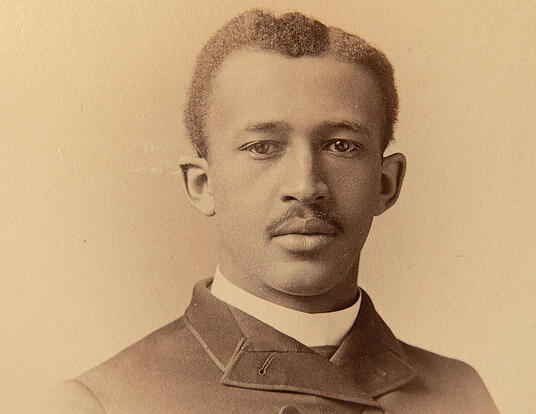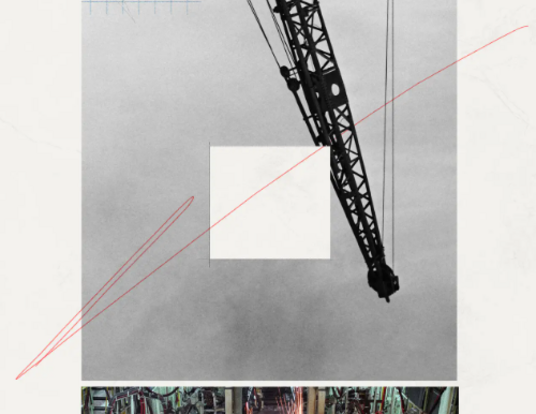Will the 21st century be “the Chinese Century”?
Two of Harvard’s most astute China observers assess the prospects and limitations of a rapidly growing superpower
A wife is jailed for poisoning a business acquaintance, a man with whom her family was enmeshed in shadowy, lucrative financial schemes. Her charismatic husband, once ruthless in his privilege, is humbled, disgraced, and about to face his own prosecutors. Their seat of power evaporates as allies and enemies battle over the remains, and a young heir, a rumored jet-setter, sees his fortunes plummet. The scandal reaches all the way to the top.
It’s a plotline that might have been ripped from the script of a vintage American soap opera. But this lurid tale is real, as are the insights it offers into the explosive growth, amazing resources, and crippling limitations of its particular setting. China, that is—ancient and all-new, revolutionary and constant, too big to fail, where small gestures and a good lunch still make things run.
This is China’s new moment of transition. The Communist Party has moved a new slate of leaders onto the Politburo’s elite Standing Committee, and party chief Xi Jinping became president in March, vowing to tackle corruption, wasteful spending, and wide disparities in wealth and living standards, all while continuing an extraordinary infrastructure boom and bolstering the military.
As this nation of 1.3 billion people rockets through the start of a new century, economists and policymakers are wondering whether China, now the world’s second-largest economy, is poised to become the world’s sole superpower. Will it leave the upheavals, the political struggles, and the rivalries behind — will the 21st century come to be known as “the Chinese century”?
That is the question that animates the forthcoming book by William C. Kirby (PhD ’81), F. Warren McFarlan (AB ’59, MBA ’61, DBA ’65), and Regina M. Abrami—an expert trio who, for seven years, collaborated to teach Harvard Business School’s second-year MBA course Doing Business in China in the Early 21st Century. The book, titled Can China Lead?, due later this year from Harvard Business Review Press, grew out of the cross-disciplinary perspectives — and decades of in-country experience — that enriched their teaching collaboration. Abrami, now at the University of Pennsylvania and the Wharton School, is a political economist. McFarlan, Baker Foundation Professor and Albert H. Gordon Professor of Business Administration, Emeritus, is a management expert. And Kirby, T. M. Chang Professor of China Studies and Spangler Family Professor of Business Administration, is a historian of modern China.
During a conversation at HBS, Kirby and McFarlan — two of the most engaged and nuanced China watchers at Harvard — say that the case of Bo Xilai, that disgraced former politician with the murderous wife, captures enduring patterns in Chinese history, while revealing systematic weaknesses in microcosm. Bo Xilai was the party secretary in the province of Chongqing. He was a “princeling,” the son of one of modern China’s founding families — a member of the elite and a possible future member of the Standing Committee. “He was a regional power, and he had absolute authority in Chongqing until the day he didn’t,” says Kirby. “He had strong local military support — you could have called him a warlord in a different period.
“And he was corrupt, almost assuredly financially corrupt. But no more than anybody else. And look what he was trying to do,” Kirby continues. “Build houses, roads, railroads, and even an opera house. He’s following in this line of technocratic development that starts not with the Communists but with the Nationalists.”
In what it reveals about the power of family and military, the patterns of corruption, and the belief in transformative infrastructure growth, the saga bookends neatly with an earlier drama, says McFarlan — the failed coup attempt by the Gang of Four, led by Chairman Mao’s widow, in 1976.
“So those are the goalposts,” McFarlan says with a smile. “And in between, you had this incredible period of stability and economic expansion driven by Deng Xiaoping.”
Deng “drove out all the politicians,” McFarlan says. “This is a government that is entirely put together by the military and by the engineers. And they are thinking big. They are spending on infrastructure like it’s going out of style, and the best is yet to come.” McFarlan, a guest professor and co-director of case development at the School of Economics and Management at Tsinghua University in Beijing, recalls getting a taste of that during a visit to one university in the Pearl River Delta — “a modest site of 180,000 students,” he says, in Guangdong Province, a region in which entire cities are being merged, creating a megalopolis poised to “put Hong Kong out of business.”
But to McFarlan, Kirby, and Abrami, those bookends are inescapable. The corruption and lack of political openness, the economic inequality, the lack of an exportable model — all of these are factors that help explain why China will be a leader this century, but not the leader, despite the impressive growth.
“When it comes to universities — there, as with the infrastructure — China has nailed the hardware,” says Kirby, the former dean of the Faculty of Arts and Sciences. “If you take an aerial photo of Harvard and Allston or even of the remarkable development of MIT and Kendall Square, and compare it to what’s going on in China, you’ll wonder who is coming out ahead. They build universities and high-tech parks as if overnight. But the big question — which they know is a big question — is how do they innovate? How do they educate people to be leaders?”
In a country that sees nothing counterintuitive in planning for innovation, one natural approach is to mimic the pathways that encourage it elsewhere. “We see every major Chinese university now experimenting with a liberal arts college within it,” Kirby says. “When I was dean and we were doing the General Education program, many Chinese university presidents came over and studied it. I often joke that it was more carefully read in Beijing than it was by my colleagues here in the FAS.”
It’s nothing new, Kirby adds. Chinese universities “grew up on international models in the late 19th and early 20th centuries, and they became extraordinarily good at it,” he says. Educational institutions were later “destroyed by the Communists during the 1950s and 1960s, but they’re coming back again,” Kirby says, though with strong political controls.
And there, perhaps, lies the rub. The talent and capacities of the Chinese people are unlimited, Kirby says. “China will do well. But what makes for good university governance? How do you follow excellence all the way through? Well, that might mean not having a party secretary at every school.”
The political infusion doesn’t necessarily lead to dysfunction, however. As McFarlan notes, the School of Economics and Management at Tsinghua has “both a dean and a party head, a structure unknown at HBS. It is not clear to me who is technically responsible for what, but they collaborate closely and I consider it a well-run school.”
“And to be fair,” Kirby adds, “there are party secretaries who are the innovators, who because they are in the party can get things done. So it’s not uniform.” And although some of the academic freedoms that are customary in the US don’t exist in China, or are undermined, rising levels of creativity and a more expansive sense of mission now characterize the best Chinese universities. In addition to the new liberal arts emphasis, universities are also emphasizing leadership training and problem-solving skills. Some are experimenting with international programs, intent on bringing leaders from all over the world to China. Some are doing important, groundbreaking work in a topic not easy to confront: contemporary Chinese history. And across the board, China is putting “unimaginable amounts of money into research.”
“From a broad historical perspective, I disagree with people who say that China is not an innovative society,” Kirby continues. “You don’t stay the most successful civilization for 2,000 years without the capacity to reinvent yourself. And very often that reinvention takes the form of seeming traditional even though it isn’t. You could argue that what Deng did in the 1980s — keeping the structure of political authority while opening up the markets — was indeed very innovative, within the Marxist-Leninist tradition.”
China has, and will have, some of the best engineering schools in the world. But to academics in the US who worry that China will surge ahead in all aspects of higher education, Kirby and McFarlan say it’s unlikely in the short term. “In terms of comprehensive universities, unless there is some serious structural change in governance, no, it won’t take a leadership role there,” says Kirby, citing the combination of research and teaching that has defined the American system, and the “genius that we’ve had in embedding liberal arts colleges within the great universities, protecting them there.”
“And you can’t visualize Chinese universities able to handle the kind of ethnic diversity of US schools,” adds McFarlan. That doesn’t mean that the leading position of American universities is guaranteed in perpetuity; after all, as Kirby has written, the best universities in the world were in Germany at the start of the last century. “The US may not always lead, but China may not, either,” McFarlan says.
Walking through Shanghai today, through the modern district of Pudong, the rapidity of the country’s transformation is stunning, Kirby says. “In the early 1990s Shanghai looked just like it did in the late 1930s, except dirtier. And now it’s one of the cleanest, most modern cities in the world.” Signs of the boom are everywhere; the country is “massively reaching out,” McFarlan says. “There are lots of foreign interactions, lots of international acquisitions. Some 78 of the world’s 500 largest companies are now headquartered in Shanghai. That came out of nowhere. That didn’t exist 15 years ago.”
What will the next 15 years bring — or the next 50? China has played an amazing game of catch-up, McFarlan says, after losing years of innovation and a generation of leaders to the Cultural Revolution. Under Deng, when leaders such as Zhao Ziyang and Hu Yaobang unleashed the forces that let the country begin to redefine itself, they also allowed for “significant economic and regulatory reform,” says Kirby. There is still a long way to go in all of those areas, but political reform, stalled after Tiananmen Square, may be the longest road of all. With the increasing wealth and power of the state and military sectors — and the influence of both on the political system — “China may have a great deal to gain from political reform,” he says, “but those in power in China may not.”
Illustration by Emiliano Ponzi
Get the Latest Updates
Join Our Newsletter
Subscribe to Colloquy Podcast
Simplecast





